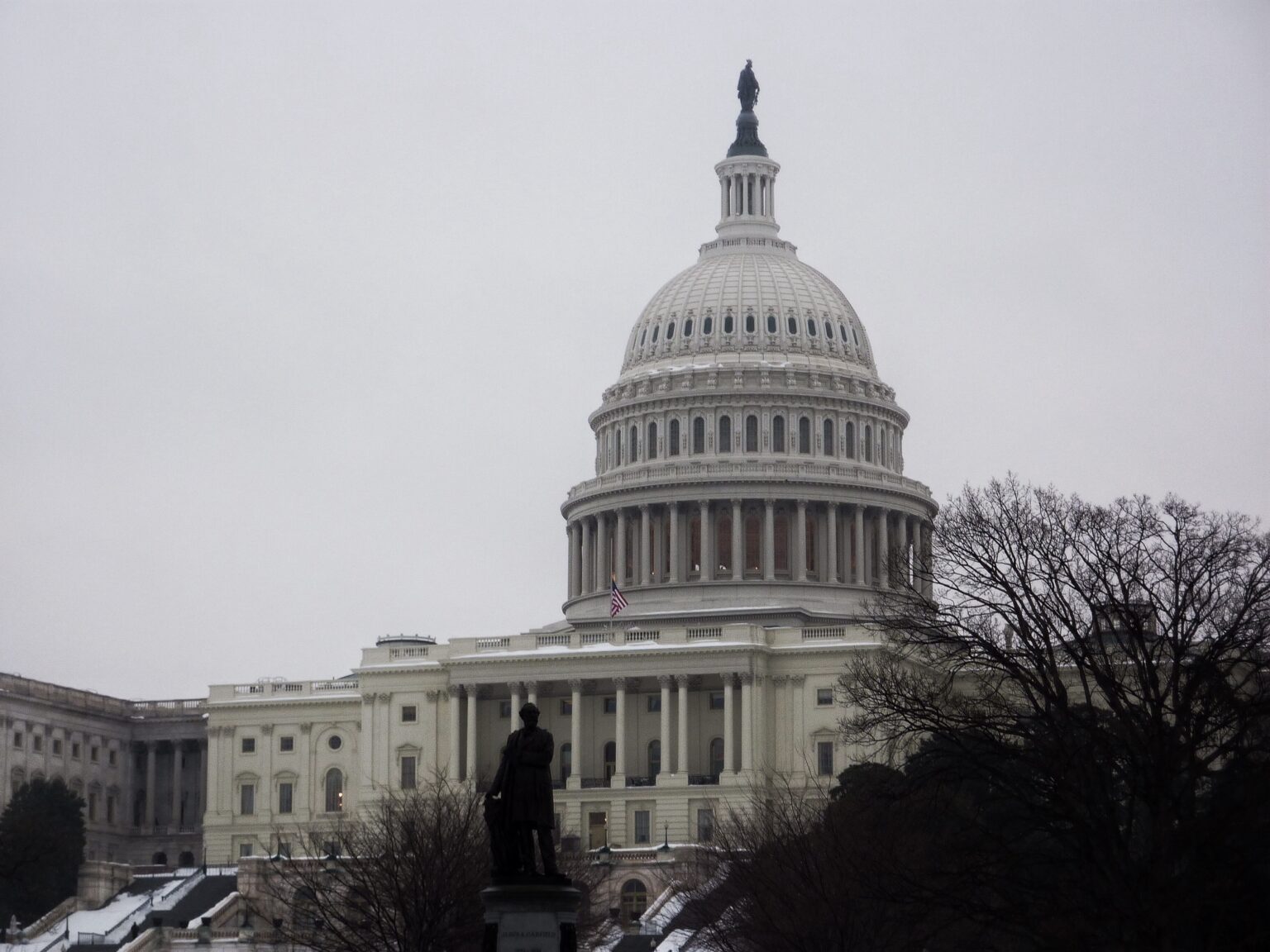
What AI Won’t Fix in CDI and Coding – And What It Might Enhance
Artificial intelligence (AI) is having a big moment in healthcare, but for those of us who have been in coding, clinical documentation integrity (CDI), and

As artificial intelligence (AI) becomes increasingly embedded in the U.S. healthcare system, the lack of comprehensive federal regulation has created something of a vacuum – one that some industry leaders are stepping in to fill.
And with growing concerns about things like patient safety, inherent bias, and ethical boundaries, states such as Illinois are establishing their own standards for responsible AI use.
But despite AI’s rapid expansion into clinical workflows, diagnostics, patient-facing tools, and back-office processes like billing and payment, there is no single or predominant federal law governing its use in healthcare.
Agencies like the Food and Drug Administration (FDA) have issued guidance on AI-based medical devices, and the Office of the National Coordinator for Health Information Technology (IT) has promoted transparency in AI in the past – such as proposed criteria for developers of federally certified health IT to ensure clinical users can access consistent information about the AI algorithms they use – but these efforts fall short of comprehensive governance.
The result is a fragmented oversight landscape, wherein AI systems are sometimes deployed with limited testing, transparency, or accountability, all under a presidential administration that continues to push for, quote: “progress without regulation.”
Mental health applications in particular have raised alarms, as several AI chatbots and “therapy assistants” have been shown to deliver inappropriate or misleading responses without adequate human oversight or safeguards to maintain ethical standards in mental healthcare.
In response, Illinois passed the Wellness and Oversight for Psychological Resources (WOPR) Act, signed into law by the Governor last week. The legislation is the first in the country to explicitly ban AI systems from the delivery of mental health treatment and from making related clinical decisions. Under the new law:
In the absence of federal rules, healthcare providers and tech companies are also increasingly taking matters into their own hands. Several leading health systems have established AI oversight committees to evaluate things like safety, equity, and efficacy before adopting new technologies.
Meanwhile, companies like Google and Microsoft have published AI ethics frameworks to guide product development, including commitments to transparency and “human-in-the-loop decision-making.”
Some healthcare organizations have even created internal review boards to assess algorithmic bias and clinical risk, though participation remains voluntary and standards vary widely across the industry.
Third-party entities have also stepped up, such as the Utilization Review Accreditation Commission (URAC) developing accreditation and certification standards and the Coalition for Healthcare AI’s flexible guidelines and playbooks.
Some experts caution that without federal leadership, the nation could face a regulatory Wild West of sorts, where inconsistent oversight allows potentially harmful tools to reach patients in less regulated areas of the country.
On Capitol Hill, healthcare advocates have been urging Congress to act. Several federal proposals have been introduced, focusing on a variety of AI issues, from transparency to data privacy to the need for clinical validation. However, nothing has passed into law, leaving states like Illinois and the industry to lead in the meantime.
So, Illinois’ WOPR Act demonstrates how state governments can maneuver decisively to protect patients when federal action lags. And as AI continues to shape the future of healthcare, the responsibility to ensure appropriate use increasingly falls to those willing to step in – until national standards catch up.
Reference material
EDITOR’S NOTE:
The opinions expressed in this article are solely those of the author and do not necessarily represent the views or opinions of MedLearn Media. We provide a platform for diverse perspectives, but the content and opinions expressed herein are the author’s own. MedLearn Media does not endorse or guarantee the accuracy of the information presented. Readers are encouraged to critically evaluate the content and conduct their own research. Any actions taken based on this article are at the reader’s own discretion.


Artificial intelligence (AI) is having a big moment in healthcare, but for those of us who have been in coding, clinical documentation integrity (CDI), and

In today’s rapidly evolving healthcare environment, coding audits have become a cornerstone of compliance and revenue integrity. The days of infrequent, retrospective reviews are behind
Please log in to your account to comment on this article.

Sepsis remains one of the most frequently denied and contested diagnoses, creating costly revenue loss and compliance risks. In this webcast, Angela Comfort, DBA, MBA, RHIA, CDIP, CCS, CCS-P, provides practical, real-world strategies to align documentation with coding guidelines, reconcile Sepsis-2 and Sepsis-3 definitions, and apply compliant queries. You’ll learn how to identify and address documentation gaps, strengthen provider engagement, and defend diagnoses against payer scrutiny—equipping you to protect reimbursement, improve SOI/ROM capture, and reduce audit vulnerability in this high-risk area.

Only ICD10monitor delivers what you need: updates on must-know changes associated with the FY26 IPPS, including new ICD-10-CM/PCS codes, CCs/MCCs, and MS-DRGs, plus insights, analysis and answers to your questions from two of the country’s most respected subject matter experts.

This third session in our 2026 IPPS Masterclass will feature a review of FY26 changes to the MS-DRG methodology and new technology add-on payments (NTAPs), presented by nationally recognized ICD-10 coding expert Christine Geiger, MA, RHIA, CCS, CRC, with bonus insights and analysis from Dr. James Kennedy.

This second session in our 2026 IPPS Masterclass will feature a review the FY26 changes to ICD-10-PCS codes. This information will be presented by nationally recognized ICD-10 coding expert Christine Geiger, MA, RHIA, CCS, CRC, with bonus insights and analysis from Dr. James Kennedy.

During this essential RACmonitor webcast Michael Calahan, PA, MBA Certified Compliance Officer, will clarify the rules, dispel common misconceptions, and equip you with practical strategies to code, document, and bill high-risk split/shared, incident-to & critical care E/M services with confidence. Don’t let audit risks or revenue losses catch your organization off guard — learn exactly what federal auditors are looking for and how to ensure your documentation and reporting stand up to scrutiny.

Learn how to navigate the proposed elimination of the Inpatient-Only list. Gain strategies to assess admission status, avoid denials, protect compliance, and address impacts across Medicare and non-Medicare payors. Essential insights for hospitals.

RACmonitor is proud to welcome back Dr. Ronald Hirsch, one of his most requested webcasts. In this highly anticipated session, Dr. Hirsch will break down the complex Two Midnight Rule Medicare regulations, translating them into clear, actionable guidance. He’ll walk you through the basics of the rule, offer expert interpretation, and apply the rule to real-world clinical scenarios—so you leave with greater clarity, confidence, and the tools to ensure compliance.

Bring your questions and join the conversation during this open forum series, live every Wednesday at 10 a.m. EST from June 11–July 30. Hosted by Chuck Buck, these fast-paced 30-minute sessions connect you directly with top healthcare experts tackling today’s most urgent compliance and policy issues.
Happy National Doctor’s Day! Learn how to get a complimentary webcast on ‘Decoding Social Admissions’ as a token of our heartfelt appreciation! Click here to learn more →
CYBER WEEK IS HERE! Don’t miss your chance to get 20% off now until Dec. 2 with code CYBER24